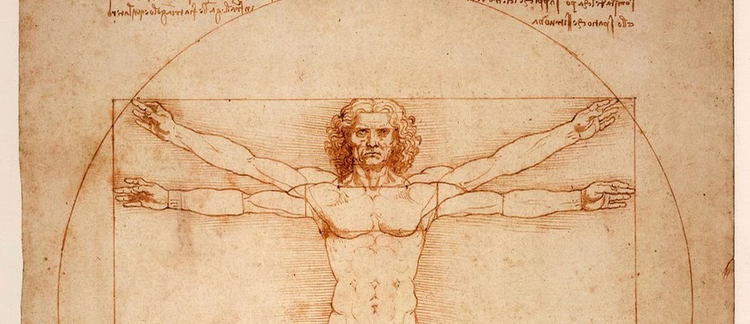Since the birth of modern medicine in nineteenth-century Europe, its authority and influence has profoundly shaped society. Medical institutions in Paris, Vienna and Berlin identified new forms of pathology, with ‘illnesses’ such as hysteria and degeneration becoming social concerns. Such disorders, diagnosed by usually male doctors, were inevitably entangled with politics and cultural biases which were consistent with a patriarchal society enforcing the boundaries of normativity. Literature absorbed the discourse of medicine, reworking the ideas of wellness and sickness. Being ill was not merely a state of individual infirmity: authors amplified sickness to encompass politics, so it became a moral barometer for the state of the nation and much else. This Special Collection aims to examine society’s relationship with sickness through literature and language(s). Taking a European transnational and transhistorical approach, this collection aims to refract the politics of the body since the nineteenth century. The medical is the starting point for studying the dynamics of different European societies and cultures on the individual, tracking the anxieties which converge upon the body. The Modern Languages expertise, plus the analysis of language(s) through literature, heightens the understanding of the cultural construction of the pathological body. This Special Collection has been guest edited by Dr Kit Yee Wong.
The Pathological Body: European Literary and Cultural Perspectives in the Age of Modern Medicine
Doubling, Decay and Discontinuity: Pathology and the (post)human body in Marie Darrieussecq’s Notre vie dans les forêts
Francoise Campbell
2021-12-06 Volume 7 • Issue 2 • 2021
Also a part of:
The Contagious Effects of Rural Violence: Social Pathologies and Injured Bodies in Blasco Ibáñez’s La barraca (The Cabin)
Katharine Anne Murphy
2022-05-16 Volume 8 • Issue 1 • 2022
Also a part of:
Special Collections
-
Diversity and Competition within the Latin Church: The Secular-Mendicant Controversy and its Long Aftermath (13th–20th Centuries)
Thinking the Political: Theory, Literature, Practice
Poetry Off the Page: Intersecting Practices and Traditions in British Poetry Performance
Humour as a Human Right
Cultural Heritage Data for Research: Opening Museum Collections, Project Data and Digital Images for Research, Query and Discovery
Literature as Imaginary Archive: Ephemera and Modern Literary Production
Caliban's Mirror: Reflections of James Joyce and Oscar Wilde
Cultural Representations of Machine Vision
The Public Curatorship of the Medieval Past
Medieval Minds and Matter
Representing the Medieval in Popular Culture: Remembering the Angevins
The Politics and History of Menstruation: Contextualising the Scottish Campaign to End Period Poverty
Production Archives 03: Archival Practices
Production Archives 02: Production Contexts
Production Archives 01: Puppets for Action
Representing Classical Music in the Twenty-First Century
The Pathological Body: European Literary and Cultural Perspectives in the Age of Modern Medicine
Binary Modernisms: Re/Appropriations of Modernist Art in the Digital Age
Local and Universal in Irish Literature and Culture
Reading in Ruins: Exploring Posthumanist Narrative Studies
The Language of Perspective
Nancy Astor, Public Women and Gendered Political Culture in Interwar Britain
The Working-Class Avant-Garde
Colonialities in Dispute: Discourses on Colonialism and Race in the Spanish State
Powering the Future: Energy Resources in Science Fiction and Fantasy
Writers and Intellectuals on Britain and Europe, 1918–2018
Literature, Law and Psychoanalysis
Muslims in the Media
Encounters between Asian and Western Art in the 20th and 21st centuries: a liberating influence for Asia?
Waste: Disposability, Decay, and Depletion
Pride Revisited: Cinema, Activism and Re-Activation
New Approaches to Late Medieval Court Records
Utopian Art and Literature from Modern India
Right-Wing Populism and Mediated Activism: Creative Responses and Counter-Narratives
Representing Climate: Local to Global
Cultivating Spheres: Agriculture, Technical Communication, and the Publics
Freedom After Neoliberalism
The Medieval Brain
Remaking Collections
New Approaches to Medieval Water Studies
Imaginaries of the Future 01: Bodies and Media
Imaginaries of the Future 02: Politics, Poetics, Place
Imaginaries of the Future 03: Utopia at the Border
Postcolonial Perspectives in Game Studies
Station Eleven and Twenty-First-Century Writing
#Agreement20
What’s Left? Marxism, Literature and Culture in the 21st Century
New Voices in Jewish-American Literature
Authors, Narratives, and Audiences in Medieval Saints’ Lives
From TV To Film
American Literature & the Transnational Marketplace
Mnemosyne
Healing Gods, Heroes and Rituals in the Graeco-Roman World
The Abolition of the University
